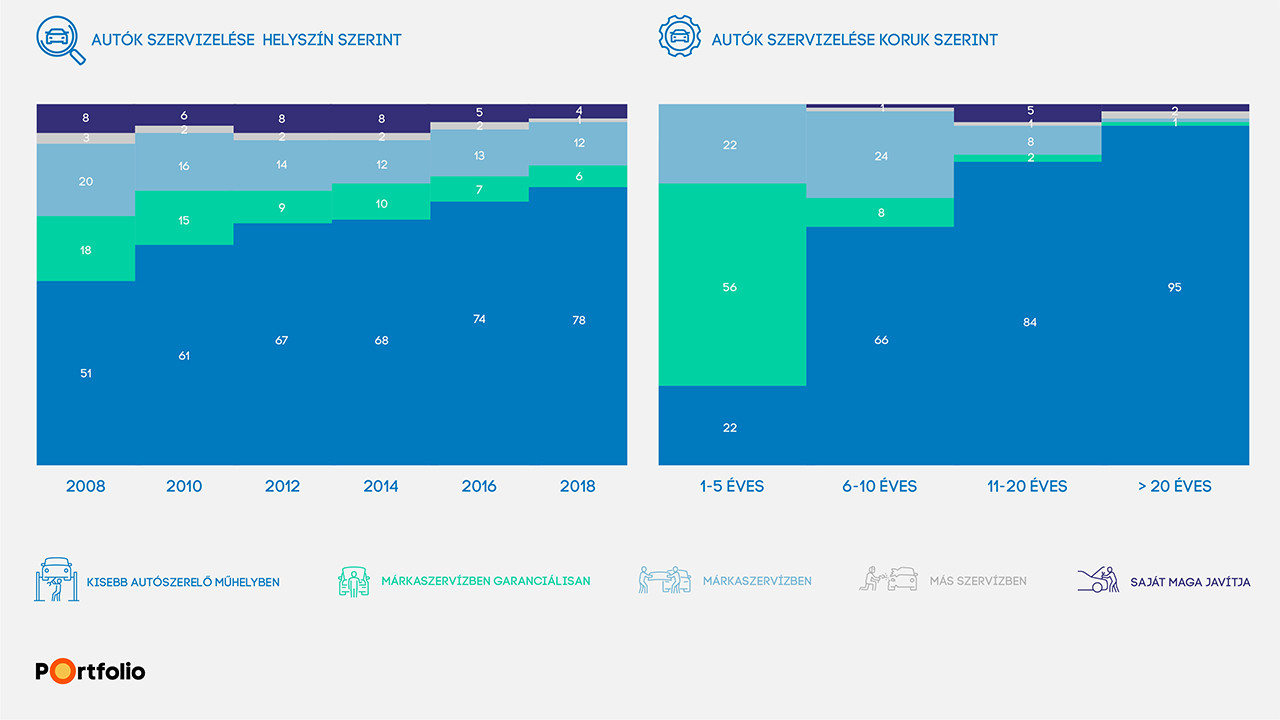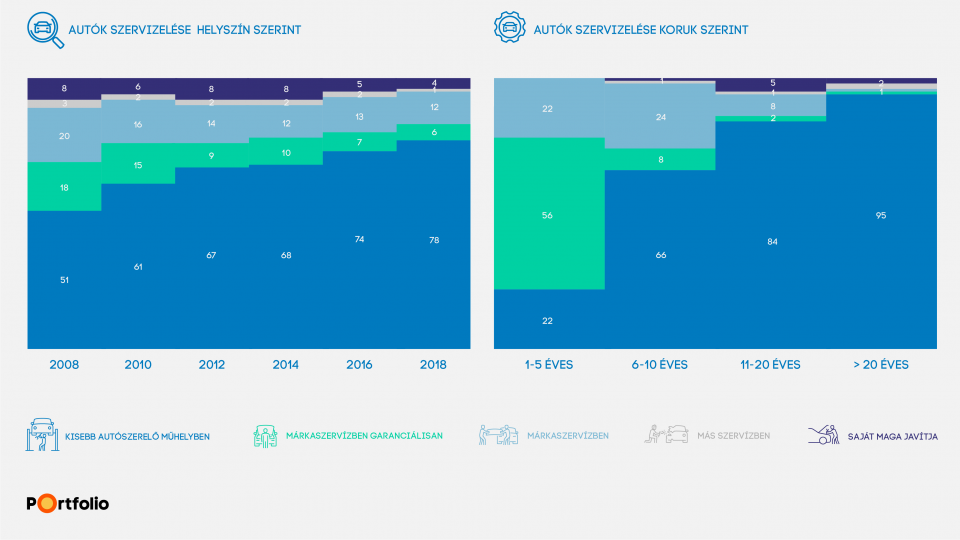With more cars on the Hungarian roads than ever before, it is good times for repair garages, but the boom is not equally kind to every sector. A series of surveys taken since 2008 has been following Hungarian servicing habits and they have shown up interesting trends over these ten years.
Since 2008, Robert Bosch Kft. has commissioned the Medián Közvélemény- és Piackutató Intézet to monitor car servicing habits among the Hungarian population. Its surveys, taken every two years on a sample of 2400 people, have found business in independent garages to have been rising continuously since the start, stagnating only between 2012 and 2014. In 2018, 78 per cent of the public were taking their car to an independent repair garage.
The trend towards servicing at independent garages has been steadily strengthening. In 2008, only 58 per cent took their cars to these workshops, a proportion that has gradually risen to its highest point of 78 per cent this year, at the expense of dealer garages. People who repair their own cars are also a dwindling minority.
A spanner’s not enough any more
For reasons of interpretability, the Bosch-sponsored survey only divides repair garages into two categories – dealer and independent. This hides differences among the independent garages. Nowadays it is not replacement and procurement of parts that is decisive in service garages, but the most important is to have diagnostic equipment that is up to date and covers a wide number of car makes and an up to date knowledge.
Owners’ are mainly influenced in choosing the type of garage by the age of their cars. Owners of cars under five years old mostly take them to dealer’s garages (78 per cent, of which 56 per cent are guarantee repairs), but this figure falls to 32 per cent for cars between six and ten years old. Of cars in the eleven- to twenty-year age group, which includes the average age of 13.9 years, only ten per cent are taken to dealer garages and eighty-four per cent to independent workshops. The big technological revolution facing the automotive industry is the electric car, that – as well as making transport more sustainable, it could probably mean a challenge to car service garages.
Mónika Hack
+36 70 510 5516
Bosch has been present in Hungary since 1898 with its products. The company is this year celebrating the 100th anniversary of the opening of its first Hungarian operation. After its re-establishment as a regional trading company in 1991, Bosch has grown into one of Hungary’s largest foreign industrial employers with currently nine Hungarian subsidiaries. In fiscal 2017 it had a total turnover of HUF 1304 billion and sales of the Bosch Group on the Hungarian market – not counting trade among its own companies – was HUF 244 billion. The Bosch Group in Hungary employs roughly 13,500 people (as per January 1, 2018). In addition to its manufacturing, commercial and development business, Bosch has a network of sales and service operations that covers the entire country.
The Bosch Group is a leading global supplier of technology and services. It employs roughly 402,000 associates worldwide (as of December 31, 2017). The company generated sales of 78.1 billion euros in 2017. Its operations are divided into four business sectors: Mobility Solutions, Industrial Technology, Consumer Goods, and Energy and Building Technology. As a leading IoT company, Bosch offers innovative solutions for smart homes, smart cities, connected mobility, and connected manufacturing. It uses its expertise in sensor technology, software, and services, as well as its own IoT cloud, to offer its customers connected, cross-domain solutions from a single source. The Bosch Group’s strategic objective is to deliver innovations for a connected life. Bosch improves quality of life worldwide with products and services that are innovative and spark enthusiasm. In short, Bosch creates technology that is “Invented for life.” The Bosch Group comprises Robert Bosch GmbH and its roughly 440 subsidiary and regional companies in 60 countries. Including sales and service partners, Bosch’s global manufacturing, engineering, and sales network covers nearly every country in the world. The basis for the company’s future growth is its innovative strength. At 125 locations across the globe, Bosch employs some 64,500 associates in research and development.
Additional information is available online at www.bosch.hu, iot.boschblog.hu, www.bosch.com, www.iot.bosch.com, www.bosch-press.com, www.twitter.com/BoschPresse



